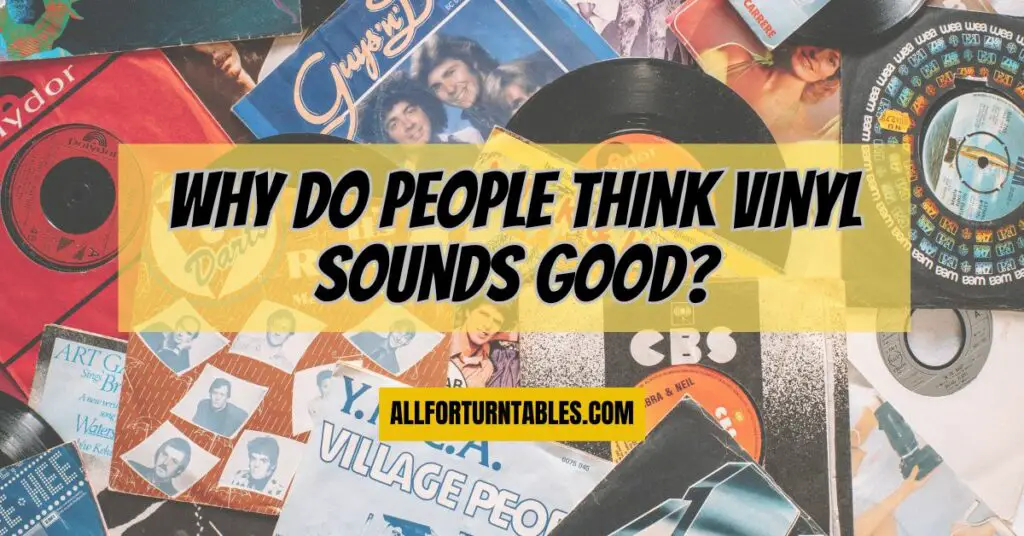In a world dominated by digital convenience and streaming, vinyl records have experienced a remarkable resurgence in popularity. Audiophiles, collectors, and music enthusiasts often extol the virtues of vinyl’s sound quality, claiming it to be superior to digital formats. But what is it about vinyl that makes people believe it sounds so good? In this comprehensive article, we’ll delve into the factors that contribute to the perception of vinyl’s superior sound and why it continues to captivate the ears of many.
1. Analog Warmth and Depth
One of the primary reasons why vinyl is perceived as sounding good is the analog warmth it imparts to music:
- Continuous Grooves: Vinyl records store music as continuous grooves, translating analog audio signals directly into physical grooves. This analog nature captures the subtleties and nuances of sound in a way that digital formats often struggle to replicate.
- Rich Harmonics: Vinyl’s analog playback introduces harmonic distortions that are often described as pleasing. These distortions contribute to the perception of a warm and full-bodied sound.
- Dynamic Range: Vinyl records have the capacity to handle a wide dynamic range, allowing for expressive audio reproduction. This characteristic is especially cherished in genres that rely on live instrumentation and intricate arrangements.
2. Vinyl’s Unique Sound Signature
Vinyl records have a distinct sound signature that appeals to many listeners:
- Surface Noise: The gentle crackling and popping sounds that accompany vinyl playback are seen as part of its charm. For some, these surface noises evoke a sense of nostalgia and authenticity.
- Imperfections: Vinyl’s inherent imperfections, such as minor pops and clicks, are often considered endearing. They remind listeners of the tangible, physical medium they are engaging with.
3. Album Art and Tangibility
Vinyl records offer more than just a sonic experience; they engage the senses in multiple ways:
- Album Art: Vinyl sleeves and artwork are often visually striking, creating an immersive and artistic experience that complements the music.
- Tangibility: Handling a vinyl record, placing it on a turntable, and gently lowering the needle provide a tactile connection to the music that digital formats cannot replicate.
4. Collector’s Appeal
Vinyl records have a strong collector’s appeal, which goes beyond sound quality:
- Hunting for Treasures: Collectors relish the thrill of searching for rare pressings, limited editions, and vintage records, making vinyl collecting a hobby unto itself.
- Ownership and Ownership Experience: Owning physical records gives a sense of ownership and a tangible connection to music that digital files lack.
5. Personal Associations and Nostalgia
Nostalgia often plays a significant role in the perception of vinyl as sounding good:
- Nostalgic Associations: Many listeners have nostalgic associations with vinyl, recalling cherished memories and the music-listening rituals of their past.
6. Audiophile Culture
Audiophile culture places a premium on sound quality and appreciates the unique attributes of vinyl:
- High-Quality Pressings: Modern vinyl pressings have improved in quality, catering to audiophiles seeking the highest level of sound fidelity.
In conclusion, the perception that vinyl sounds good is rooted in its analog warmth, unique sound signature, and the multi-sensory experience it offers. The imperfections and tangible nature of vinyl records contribute to their appeal, as does their ability to evoke nostalgia and engage the senses. While the debate over vinyl vs. digital audio will persist, the enduring allure of vinyl records lies in the analog magic they bring to the world of music, making them a beloved medium for audiophiles and music enthusiasts alike.


